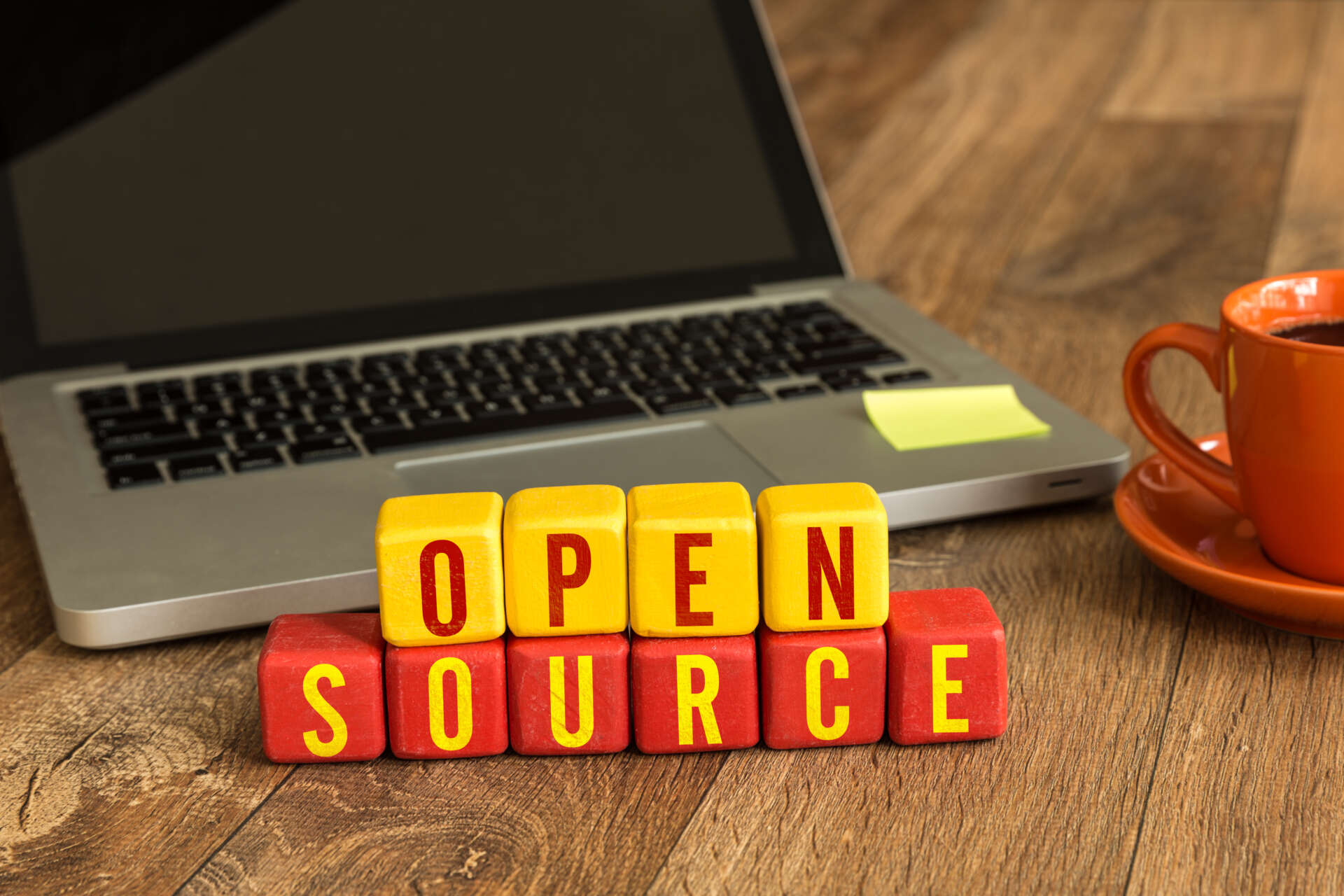WordPress.org Takes Control A Controversial Plugin Move
Recent actions within the WordPress sphere have ignited significant debate, centering on WordPress.org’s decision to take control of a widely used plugin previously maintained by WP Engine. This move, involving the Advanced Custom Fields (ACF) plugin, which was acquired by WP Engine, has sent ripples through the community and brought the issue of WordPress ecosystem trust after plugin controversy to the forefront.
The change saw the version of the popular ACF plugin available on the official WordPress.org plugin repository transitioned to being directly maintained by WordPress.org contributors, effectively becoming a fork. This new iteration was rebranded as Secure Custom Fields and became a non-commercial offering. The original ACF plugin, while still operational and available through WP Engine’s channels (including its premium version), was no longer the version actively updated and distributed via the official repository.
This sudden shift departed from the typical process of plugin maintenance and transfer, sparking surprise and concern among developers, agencies, and businesses reliant on ACF and the broader WordPress platform. The mechanism by which this transition occurred, particularly the apparent override of the original maintainer’s control on the official platform, became a major point of contention. It raised questions about the governance and the relationship between WordPress.org, its commercial partners, and the plugin development community.
For many, the incident highlighted the intricate balance of power and responsibility within the open-source project, especially when commercial entities are involved. Plugins are fundamental to extending WordPress functionality, as discussed in our article on WordPress plugins. When control over a popular plugin shifts unexpectedly, it can create uncertainty for millions of users who depend on its stability and continued development.
The move also involved the removal of elements perceived as commercial from the plugin’s listing and codebase on the WordPress.org repository, including references to the premium ACF Pro version and features designed to encourage upgrades. This specific action fueled speculation about the underlying motives, suggesting reasons beyond mere technical maintenance.
Overall, the event created an environment of uncertainty. Users and developers were left questioning the future of plugin distribution, update mechanisms, and the potential for similar actions impacting other critical components within the ecosystem. Understanding the stated rationale behind this controversial step is crucial to fully grasping the complexities involved.
The Stated Reason Security Concerns Under Scrutiny
The official communication from WordPress.org cited security vulnerabilities within the Advanced Custom Fields plugin as the primary justification for taking over its maintenance and distribution on the repository. The narrative presented was one of necessary intervention to protect WordPress users from potential threats posed by insecure code. Security, naturally, is a paramount concern for any content management system, and WordPress has historically emphasized its importance, as highlighted in previous discussions like 5 Reasons Why WordPress is the Secure Choice for You.
According to WordPress.org, vulnerabilities were identified in the ACF plugin that required immediate remediation. The claim was that the severity of these issues necessitated direct action to ensure that users downloading or updating the plugin from the official source received a secure version promptly. This led to the creation of the Secure Custom Fields fork, which incorporated the necessary security patches while removing the commercial aspects.
However, the community reaction wasn’t uniformly accepting of this explanation. Many observers and technical experts scrutinized the claimed security issues and the timing of the takeover. Questions arose about whether the vulnerabilities were truly critical enough to warrant such a drastic and unprecedented measure, particularly one that bypassed the usual processes involving the plugin’s original developers and maintainers.
Key points of skepticism included:
- Lack of Public Detail: Critics noted that detailed information about the specific security vulnerabilities, such as a Common Vulnerabilities and Exposures (CVE) identifier, was not immediately and widely publicized in a manner commensurate with a high-severity threat requiring urgent takeover.
- Timing Relative to WP Engine’s Fix: Evidence presented by some community members suggested that WP Engine (the plugin’s owner) had already developed and released patches for the identified vulnerabilities shortly before or around the same time as WordPress.org’s takeover. This raised questions about whether direct intervention was the only feasible solution or if collaboration could have addressed the issue.
- Scope of Changes: The observation that a significant portion of the changes made in the WordPress.org version involved removing commercial elements, rather than solely applying security fixes, fueled doubts about whether security was the sole or even primary driver behind the action.
A review of the code changes publicly available seemed to confirm that while security fixes were indeed part of the update, a substantial number of modifications were related to stripping out branding, promotional material for the Pro version, and features linking to the commercial offering. This led many to believe that security concerns, while potentially valid, might have been utilized as a catalyst or justification for addressing other underlying issues, rather than being the exclusive motivation.
The handling of the communication and the perceived lack of transparency surrounding the critical security threat further eroded confidence. When trust is paramount, especially regarding security updates on a platform powering a large portion of the web, ambiguity can breed suspicion and significantly impact the overall confidence in the ecosystem’s governance and integrity. This situation clearly illustrates the delicate balance between necessary security actions and maintaining community trust.
Beyond Security Unpacking the Underlying Tensions and Disputes
While security was the stated rationale for WordPress.org’s intervention with the ACF plugin, the widespread community discussion quickly pivoted to exploring deeper, underlying tensions between WordPress.org and WP Engine. The controversy brought to light a complex relationship marked by philosophical differences, commercial competition, and long-standing disputes that extend far beyond a single plugin’s security status.
One prominent point of contention revolves around the concept of contribution within the open-source WordPress project. Matt Mullenweg, a founder of WordPress, has publicly advocated for commercial entities that significantly benefit from WordPress (like hosting providers or plugin companies) to contribute back to the project, either through code, resources, or financial support for development. The argument is that these companies build multi-million dollar businesses on the foundation of free, community-built software and have a moral, if not always a licensing-based, obligation to reinvest in that foundation.
WP Engine, a successful managed WordPress hosting provider, has been perceived by some as not contributing enough in relation to their profitability derived from the platform. While WP Engine does contribute (employing core contributors, developing popular plugins like ACF and the previously mentioned file-to-S3 plugin, and sponsoring events), there appears to be a fundamental disagreement on the scale and nature of this contribution relative to their commercial success.
Adding complexity is the inherent tension between WordPress.org (the open-source project and community hub) and Automattic (the commercial company co-founded by Mullenweg, which operates WordPress.com, Jetpack, WooCommerce, and has investments in other WP-related businesses). Automattic and WP Engine are direct competitors in various segments, particularly in managed WordPress hosting. This competitive landscape fuels suspicion that actions taken by WordPress.org might be influenced by Automattic’s commercial interests.
Specific points of friction cited in community discussions and reports include:
- Trademark Issues: Debates have arisen regarding WP Engine’s use of WP in their name and marketing, with some arguing it implies a closer affiliation with the official WordPress project than exists, potentially leveraging the brand built by the community. Changes to WordPress’s trademark policy around the time of the controversy further fueled this discussion.
- Plugin Monetization and Licensing: The removal of premium features and upsells from the ACF plugin on the WordPress.org repository touches upon long-standing debates about how commercial plugins should operate within the GPL-licensed ecosystem and on the official platform. WordPress.org guidelines have historically had stipulations about trialware and pushing premium versions, but the enforcement and interpretation in this case were seen as unusually aggressive. The GNU General Public License (GPL), under which WordPress is licensed, allows for commercial use and distribution of modified versions, which forms the legal backdrop to these disputes.
- Dashboard Notices and Communication: Previous incidents involving WP Engine removing WordPress.org dashboard widgets (which sometimes display messages or promotions from WordPress.org/Automattic) were brought up as part of the escalating tensions. The ability for different parties to control the user’s dashboard interface became a battleground.
- Personality Conflicts: While difficult to quantify, many in the community perceive a significant personal dimension to the conflict, particularly involving key figures at WordPress.org/Automattic and WP Engine. Such interpersonal dynamics, when present in the leadership of major ecosystem players, can exacerbate disputes and hinder collaborative resolution.
These multifaceted issues suggest that the ACF plugin takeover was not an isolated security measure but rather an inflection point in a simmering conflict involving differing philosophies on open source, competition for market share, and disagreements over community contributions and branding. Understanding these underlying factors is essential for comprehending the full scope of the impact on the WordPress ecosystem stability and trust.
Navigating the Fallout Restoring WordPress Ecosystem Trust After Plugin Controversy
The immediate aftermath of the WordPress.org takeover of the ACF plugin was characterized by confusion, frustration, and a palpable sense of damaged trust within the WordPress community. For businesses, developers, and end-users, the incident raised critical questions about the reliability and predictability of the platform they rely on. Restoring WordPress ecosystem trust after plugin controversy requires a thoughtful approach to understanding the fallout and implementing strategies for stability.
The fallout directly impacted users of the ACF plugin, especially those on WP Engine hosting. Clients who hadn’t interacted with their sites in years suddenly became aware of the controversy, fearing disruptions to their business operations. As one comment in the reference material highlighted, some clients even began considering moving away from WordPress entirely due to concerns about stability and potential future conflicts affecting their sites.
Developers and agencies faced immediate challenges in advising their clients. Questions arose about which version of ACF to use (the original from WP Engine or the new Secure Custom Fields from WordPress.org), how updates would be handled, and whether the non-commercial version from WordPress.org would retain compatibility and functionality over time. The removal of premium features from the WordPress.org version also meant that users who relied on those features would need to navigate obtaining them directly from WP Engine, potentially complicating their workflows.
Beyond the technical aspects, the controversy eroded trust in the governance of WordPress.org and the stability of the plugin ecosystem. Businesses that have invested heavily in WordPress development frameworks and custom solutions built around specific plugins wondered if other essential tools could be subject to similar sudden changes. This unpredictability is a significant concern for enterprises and agencies who require a stable foundation for their digital presence.
To navigate this fallout and work towards restoring trust, several strategies and considerations emerge:
- Prioritize Communication and Transparency: Both WordPress.org and WP Engine have a responsibility to clearly communicate the status of the plugins, update paths, and their long-term plans. Transparently addressing the underlying issues, rather than solely focusing on technical justifications, can help rebuild confidence.
- Develop Clear Governance Policies: The incident underscores the need for explicit and consistently applied policies regarding plugin ownership, maintenance transfers, security vulnerability handling, and the relationship between commercial products and the open-source repository. Clarity on these policies is crucial for maintaining a healthy ecosystem. Evaluating the transparency of WordPress open-source governance is a key step.
- Support Alternative Distribution Channels: For mission-critical plugins, businesses might explore obtaining and managing plugins directly from the developer’s website rather than solely relying on the WordPress.org repository for updates, although this introduces its own management overhead.
- Diversify Plugin Usage: Relying too heavily on a single plugin for core site functionality can increase risk. Exploring alternative plugins or custom development for essential features can provide greater flexibility and reduce dependence on any one vendor or the dynamics of their relationship with WordPress.org.
- Advocate for Community Input: The controversy highlights the importance of robust channels for community feedback and input into significant decisions affecting widely used components of the ecosystem. A more inclusive decision-making process can help prevent future disputes from escalating to this level.
Ultimately, restoring trust is a long-term process that requires consistent, principled behavior from all parties involved. The actions taken following such controversies are just as important as the initial event in determining the future health and perceived reliability of the WordPress ecosystem.
Community Reaction and the Quest for Stability
The reaction from the broader WordPress community to the plugin controversy was swift and largely critical of WordPress.org’s handling of the situation. Forums, social media, and industry news sites became platforms for developers, site owners, hosting providers, and agencies to voice their concerns, frustrations, and interpretations of events. This collective voice underscores the deep reliance and emotional investment many have in the platform, but also their vulnerability to its internal politics and disputes.
Key themes in the community’s reaction included:
- Condemnation of the Takeover Method: Many felt that regardless of the underlying reasons, the manner in which WordPress.org took control of the plugin on the repository was heavy-handed and set a dangerous precedent. The feeling was that it demonstrated a willingness to use control over the platform’s central distribution channel as leverage in disputes.
- Questioning of Motives: As discussed, the community widely perceived the action as being driven by commercial competition or a desire to enforce a specific philosophy on open-source contributions, rather than being a purely security-driven decision. This perception significantly damaged the view of WordPress.org as a neutral steward of the open-source project.
- Fear of Instability: A recurring sentiment was fear about the future stability of the platform. If a widely used, well-maintained plugin like ACF could be subject to such upheaval, what does that mean for other plugins? Will other commercial entities face similar pressure or actions? This uncertainty is detrimental to businesses built on WordPress.
- Criticism of Communication: The communication from WordPress.org was often described as lacking transparency and failing to fully address the community’s concerns about the process and the true motivations. Poor communication in times of crisis can deepen distrust.
- Support for WP Engine (in this instance): While WP Engine is a commercial entity with its own business interests, many community members sided with them in this specific dispute, viewing them as the party whose work was unfairly appropriated or whose business was being targeted through the plugin takeover.
The quest for stability became a central theme in the aftermath. Businesses relying on WordPress need a predictable environment for development and operations. Frequent or dramatic shifts in platform governance, plugin availability, or update mechanisms introduce unacceptable risk.
This episode highlights the delicate social contract within open-source ecosystems. Users and developers contribute to and rely on the platform with certain expectations of how it will be governed and how their contributions (whether code, community involvement, or building businesses upon it) will be valued and protected. When those expectations are perceived to be violated, it can lead to disengagement and a search for more stable alternatives. For example, some companies considered moving away from WordPress entirely towards other CMS options like React enterprise CMS, as mentioned in the reference material, or exploring platforms compared in articles like our guide on comparing Shopify, WooCommerce, BigCommerce, and alternatives.
The community’s reaction serves as a vital feedback mechanism. It signals that actions perceived as prioritizing specific commercial or philosophical agendas over the broad interests of ecosystem participants can have significant negative consequences, impacting not just individual plugins but the platform’s reputation as a reliable and trustworthy foundation for the web.
Lessons from the Controversy The Future of Open Source Platforms
The controversy surrounding the ACF plugin takeover offers valuable lessons not just for the WordPress community, but for the broader landscape of open-source software and the commercial ecosystems that develop around them. It highlights the inherent challenges that arise when successful commercial entities build upon a foundation maintained by a decentralized community, often with strong ties to another commercial entity.
One of the primary lessons is the critical importance of clear and consistently applied governance in open-source projects. While the GPL provides a legal framework for code usage and distribution, it doesn’t inherently dictate the rules for associated marketplaces, branding, or community interactions. The ACF incident demonstrated that ambiguity or perceived inconsistency in these areas can lead to significant conflict when commercial stakes are high. Open-source projects that become foundational to large industries must evolve governance models that are transparent, fair, and predictable to all stakeholders.
Furthermore, the controversy underscores the complex relationship between contribution and commercial success in open source. While the GPL does not mandate contribution back to the project for commercial users, there is often a community expectation, sometimes referred to as a social contract, that profitable businesses built on open source will support the underlying project. Disputes can arise when there’s a mismatch between this expectation and the perceived level of contribution. Finding sustainable models where commercial success benefits the open-source core, and where those contributions are acknowledged and valued, remains a challenge.
The incident also serves as a reminder of the power wielded by those who control central distribution channels, such as plugin repositories. This control comes with significant responsibility. Actions taken via these channels can have far-reaching consequences, impacting millions of users and businesses. The community expects these channels to be operated neutrally and in the best interest of the ecosystem as a whole, not as tools in commercial or personal disputes.
The perception of the ACF plugin takeover as a supply chain attack by some, while potentially hyperbolic in the traditional security sense, reflects the feeling of vulnerability users experienced when the trusted source of a crucial component (the official repository plugin update) was altered without clear consent or prior warning from the original developers. Maintaining the integrity and trust of software supply chains, whether for open-source or proprietary software, is paramount.
For the future of open-source platforms, these lessons suggest:
- Strengthened Governance: Develop robust, publicly documented governance structures and processes that clearly define roles, responsibilities, and decision-making authority, particularly concerning the interaction between the open-source core and commercial extensions/services.
- Define Contribution Expectations: Engage the community and commercial partners in discussions about sustainable models for contribution and clearly articulate expectations, perhaps through non-binding guidelines or initiatives that encourage reinvestment.
- Ensure Neutrality of Core Infrastructure: Maintain the perceived and actual neutrality of core platform infrastructure like plugin repositories and update systems, ensuring they serve the interests of the entire ecosystem.
- Improve Conflict Resolution Mechanisms: Establish formal or informal mechanisms for mediating disputes between key ecosystem players before they escalate into public controversies that damage trust.
- Prioritize Community Engagement: Continuously engage with the diverse range of community members – developers, users, agencies, hosting providers – to understand their needs and concerns, building consensus and fostering a sense of shared ownership and direction.
The ACF plugin controversy is a critical moment for the WordPress ecosystem. How the project and its leaders respond will significantly impact its ability to maintain WordPress ecosystem trust after plugin controversy and its position as a dominant force on the web. It is a case study in the delicate dance between open-source ideals, commercial realities, and community dynamics, offering insights for anyone involved in building or relying upon large-scale open-source projects.
Have questions? Contact us here.








Get Social